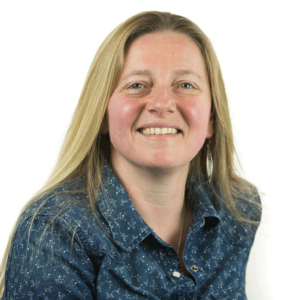
I’m currently in the early stages of a new book, which is always both an exciting and a daunting time: exciting because of all the possibilities that are open to me; daunting because the book doesn’t have its own identity yet. It can be anything I want it to be, but at the moment it’s still elusive.
This will be my twelfth crime novel, but the process of writing still feels magical to me, a strange alchemy of elements that is different every time. Each book has its own character and personality, but there are some things that every novel has in common and developing those in tandem is what keeps me going at this early stage; it’s what gives me faith that the book can be more than the sum of its parts by the time I’ve finished.
These days, crime writing is so diverse that it makes a nonsense of any attempt to classify it, but there are five key areas in which I think the best crime fiction really excels. They’re the building blocks to any story, and – hopefully! – the foundations of a narrative which will make readers believe in a world that stems purely from my imagination:
The idea
The heart of a book is usually a good, original idea – but ideas are unpredictable; they never come to order, and you can spend a lot of time waiting for the right one to come along. As exciting as a flash of inspiration is, though, there are other very important things for me to consider when a novel begins to take shape. What themes do I want to explore? What elements of my own experience will I bring to the story? What will be different about this book and what will really challenge and stretch me? All these are as important as the central premise.
The world of the book
Most of my novels start with where I choose to set them – and a sense of place is fundamental to them all.
Creating a watertight world for the reader is essential – for the sheer pleasure of a beautiful descriptive passage, but also for a very practical reason: if I can convince readers of my physical setting – if they feel they’re on the page with me, seeing and hearing what I am – the chances are they’ll believe me on other things, too. The most extreme events will always feel more credible if they’re firmly rooted in a tangible place.
The people
I love the centrality of motive in crime fiction, and how credible it means your characters have to be. It’s all about the truth – not just the solution, revealed towards the end, but the truth of human nature, and that should run through every page. Whether it’s my detective, my victims or my perpetrators, I try to let my characters evolve naturally from the story. Authentic dialogue is important, and so is choosing the right names for them – they only come to life for me when I know what they’re called, and if I have to change names once the book is underway, I never feel quite the same way about them.
The dark stuff
Writing a crime novel is a process full of instinctive judgements, some more tangible than others. One area I think a lot about is how I’m going to approach the violence that will inevitably be at the heart of my book. Where is the line between realism and gratuitousness? Who suffers, and how much? How can I keep squaring the circle of death as entertainment? One of the reasons I love writing crime is the extraordinary humanity of the genre: it might deal with violence and death, but it also deals with compassion and empathy; it shows us the best as well as the worst within ourselves.
The end
Readers tend to fall into one of two categories: those who want to be fooled and those who want to be right. I love being wrong when I read a good crime novel, and – to a certain extent – that’s true of the ones I write, too. These days, I very rarely know who did it when I start on a new book: I have an idea that I work towards and at some stage – often quite late on – something occurs to me that’s just that little bit cleverer, and the narrative will twist again.
It’s true to say that everything I’ve wanted to explore in my writing I’ve been able to do through the medium of crime fiction, and with each book I write I become more excited than ever by the scope and depth of what the genre can offer.
 Nicola Upson is the author of four previous Josephine Tey mysteries, including An Expert in Murder, and two works of nonfiction. She has worked in theater and as a freelance journalist. NCW first worked with Nicola when she was awarded a mentorship on the Escalator Talent Development Scheme.
Nicola Upson is the author of four previous Josephine Tey mysteries, including An Expert in Murder, and two works of nonfiction. She has worked in theater and as a freelance journalist. NCW first worked with Nicola when she was awarded a mentorship on the Escalator Talent Development Scheme.
Nicola is also an NCW Academy online course tutor, and will be leading our upcoming intermediate crime fiction course. Find out more →
You may also like...
Reintroducing Harriet Martineau with Stuart Hobday & Gaby Weiner
In this episode of The Writing Life, Stuart Hobday and Gaby Weiner discuss their new book ‘Reintroducing Harriet Martineau: Pioneering Sociologist and Activist’, and the the life and legacy of Harriet Martineau.

22nd April 2024
How to improve your poetry: top tips for aspiring poets
Embarking on a new poem can feel like an intimidating task for any poet. In this article, we share our top tips and a creative writing exercise that will help you have fun with your poetry.

18th April 2024
Crafting identity in fiction with Michael Donkor
In this episode of The Writing Life podcast, we speak with novelist Michael Donkor about how to craft identity when writing fiction.

8th April 2024






